
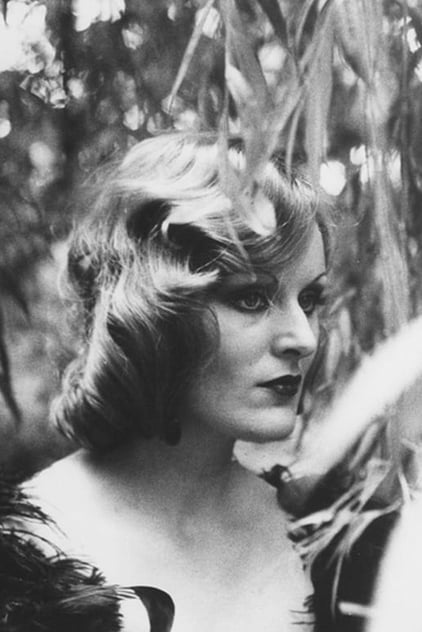
Magdalena Montezuma
Born: January 1, 1942
Died: July 15, 1984
in Würzburg, Germany
Died: July 15, 1984
in Würzburg, Germany
Magdalena Montezuma was born in 1943 in Würzburg, Bavaria, Germany as Erika Kluge. She was an actress, known for The Death of Maria Malibran (1972), Macbeth Oper von Rosa von Praunheim (1971) and The Rose King (1986). She died on July 15, 1984 in Berlin, Germany.
Movies for Magdalena Montezuma...
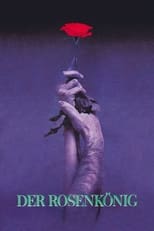
Title: The Rose King
Character: Anna, The Mother
Released: March 3, 1986
Type: Movie
A mentally unstable woman and her son move to a sprawling mansion in Portugal to grow roses.


Title: Dorian Gray in the Mirror of the Yellow Press
Character: Golem / Norn
Released: March 9, 1984
Type: Movie
The final installment in Ulrike Ottinger’s Berlin Trilogy (following TICKET OF NO RETURN and FREAK ORLANDO) casts Delphine Seyrig as the nefarious Fritz Lang supervillain Dr. Mabuse, here the head of a powerful media empire that seeks to create headlines by manufacturing (and then publicly destroying) its own celebrity: the wealthy, handsome playboy Dorian Gray.


Title: A Woman in Flames
Released: May 11, 1983
Type: Movie
Eva, an upper-class housewife, frustratedly leaves her arrogant husband and decides to enter the call girl business. She lets Yvonne, a prostitute, teach her the basics and both set out for prey together, until Eva starts an affair with Chris, who turns out to be a call boy, as well. Consequently, she moves into his penthouse, large enough for both to offer their services separately.


Title: Kiez
Released: April 22, 1983
Type: Movie
Set in Hamburg's “Hell's Kitchen,” a waterfront milieu of gangsters, pimps, dealers and prostitutes, the story follows the attempts of an ex-seaman first to insinuate himself into the scene, and then to extricate himself from it. He becomes a small-time pimp, sending his naive girlfriend out onto the streets thinking she is financing their middle-class future. When he becomes involved with an old pal, Nil, he increases his criminal portfolio. But when he steals Nil's girlfriend and things heat up, he leaves for his sister's middle-class home in Berlin, where his attempts to fit in are doomed from the start. Returning to Hamburg, he starts a rapid decline that delivers him into the waiting arms of Nil, whose revenge is merciless.

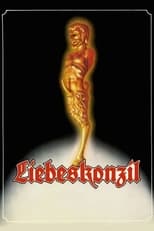
Title: Liebeskonzil
Character: Doppelzeugin
Released: March 12, 1982
Type: Movie
Oskar Panizza’s The Council of Love (1895) is a blasphemous play set in 1495, during the first recorded outbreak of syphilis, which Panizza satirically presents as the punishment from Satan for sexually active humans. As a result, Panizza was imprisoned for obscenity. Schroeter alternates scenes from the Panizza’s work with a dramatization of his trial, presenting the play as an expressionist spectacle performed by actors wearing exaggerated makeup who gesture and grimace grotesquely. The film thus forms a bridge between Schroeter’s use of tableaux in his early experiments with the political urgency of his 1980s films. On the eve of the AIDS crisis, Schroeter is presciently worried about disease as an excuse for governmental repression and the oppression of sexuality. - Harvard Film Archive

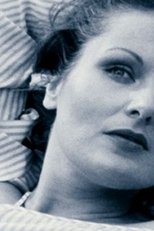
Title: Macumba
Character: Magda/Isabelle
Released: January 1, 1982
Type: Movie
Max Taurus, a sort of amateur detective, pursues the traces of general omni-present crime back to a partially demolished house. There, the remaining tenants try to gain pleasure and power from progressive abandonment in order to tear down their own conventionalities.

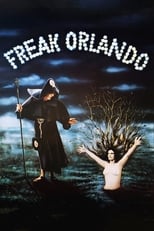
Title: Freak Orlando
Character: Orlando, als Pilger, Orlando Zyldopa, Orlando Orlanda, Orlando Capricho, Mr. Orlando, The Entertainer Mrs. Orlando
Released: November 6, 1981
Type: Movie
FREAK ORLANDO is divided into five more-or-less distinct sections, all featuring "Freak" Orlando, a woman, played by the late Magdalena Montezuma, who appears in various guises, and deformities, throughout.

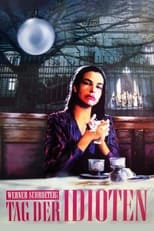
Title: Day of the Idiots
Character: Zigeunerin
Released: October 31, 1981
Type: Movie
A woman experiences psychic disintegration and ends up in a psychiatric hospital.

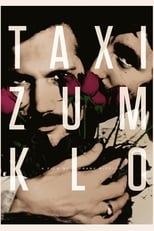
Title: Taxi to the Toilet
Character: Nurse (as Magdalene Montezuma)
Released: January 1, 1981
Type: Movie
Frank, a gay school teacher, has a very active sex life and an interest in making films. One evening, he meets Bernd and they become lovers. But while Bernd is attentive and caring, Frank gets bored and continues his polymorphously perverse ways.


Title: Palermo or Wolfsburg
Character: Verteidigerin
Released: February 1, 1980
Type: Movie
An impoverished young man from Sicily travels to Wolfsburg, West Germany to find work. He takes a job in the Volkswagen factory after he travels through Northern Italy by train.

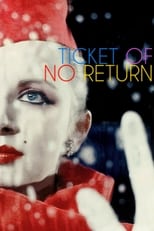
Title: Ticket of No Return
Character: Soziale Frage
Released: October 27, 1979
Type: Movie
A sartorially resplendent woman of few words arrives in Berlin with plans to live out the rest of her days as a drunkard.

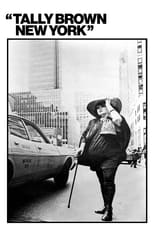
Title: Tally Brown, New York
Released: May 4, 1979
Type: Movie
Tally Brown, New York is a 1979 documentary film directed, written and produced by Rosa von Praunheim. The film is about the singing and acting career of Tally Brown, a classically trained opera and blues singer who was a star of underground films in New York City and a denizen of its underworld in the late 1960s. In this documentary, Praunheim relies on extensive interviews with Brown, as she recounts her collaboration with Andy Warhol, Taylor Mead and others, as well as her friendships with Holly Woodlawn, and Divine. Brown opens the film with a cover of David Bowie’s “Heroes” and concludes with “Rock ’n’ Roll Suicide.” The film captures not only Tally Brown’s career but also a particular New York milieu in the 1970s.


Title: Execution: A Story of Mary
Released: February 27, 1979
Type: Movie
A German short film



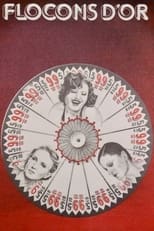
Title: Goldflocken
Character: Magdalena, Josette, The Angel of Death
Released: May 20, 1976
Type: Movie
Werner Schroeter's rhapsody of excess leaps from 1949 Cuba to contemporary France to points in between, while its feverishly shifting visual style evokes and parodies everything from kitschy Mexican telenovelas to silent French art films.

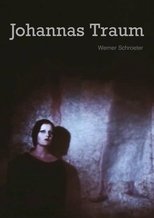
Title: Joan's Dream
Released: January 1, 1975
Type: Movie
With the ascetic grandeur of Carl Th. Dreyer’s The Passion of Joan of Arc, Schroeter evokes the visions of Saint Joan, partly through unused footage of Darling and Caven pantomiming in his 1972 film The Death of Maria Malibran. - MoMA


Title: The Black Angel
Released: May 7, 1974
Type: Movie
Two women, one from Boston and one from Germany, flee their empty lives to seek fulfillment in Mexico. The Black Angel is a transitional film; on one hand, it is a companion piece to Willow Springs, featuring two Schroeter regulars as characters far from home and in extremis; on the other hand, it is a film essay about Mexico and as such a harbinger of Schroeter’s nonfiction work to come. While he clearly shares his characters’ fascination with Mexico, the filmmaker also savages touristic exoticism – the otherworldly appearances of his protagonists and their rapturous reactions to new surroundings contrast sharply with the sober perceptions of Mexican history and economics featured in the documentary segments and in the prosaic presence of a non-professional cast of locals. - Harvard Film Archive

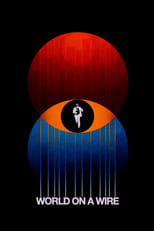
Title: World on a Wire
Character: Party Guest
Released: October 14, 1973
Type: TV
Cybernetics engineer Fred Stiller uncovers a massive corporate conspiracy involving a virtual reality computer project.

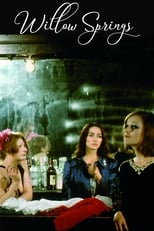
Title: Willow Springs
Character: Magdalena
Released: April 3, 1973
Type: Movie
Living together in an isolated house, three women go to murderous lengths to keep strangers out of their private retreat.


Title: Was die Rechte nicht sieht, kommt erst recht aus dem Ohr heraus
Released: November 3, 1972
Type: Movie
Early Rosa von Praunheim short film. Originally intended to be the ending of "Die Bettwurst".


Title: Grotesk - Burlesk - Pittoresk
Released: October 11, 1972
Type: Movie
Short film directed by Rosa von Praunheim and Werner Schroeter. Considered lost.


Title: The Death of Maria Malibran
Character: Maria Malibran
Released: March 2, 1972
Type: Movie
A series of tableaux illustrating the life and death of a celebrated 19th century German opera singer.

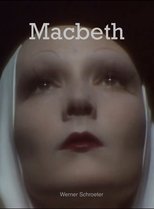
Title: Macbeth
Released: December 18, 1971
Type: Movie
Fusing Shakespeare‘s tragedy with the Verdi opera, Schroeter's Macbeth is a fascinating television experiment shot entirely in a studio with several electronic cameras. As Schroeter would recall, "I arranged the Verdi music for a quartet of violin, accordion, piano and oboe, but modeled the rhythms on Argentinian tangos and boleros. The actors sang with horrifying, shrill voices.... The use of video allowed me to produce extraordinary colors.... Of all my films, Macbeth was most unwelcome: Audiences don’t like their Shakespeare to be presented in this way, but I do not differentiate between kitsch and culture...". - MoMA

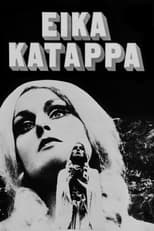
Title: Eika Katappa
Released: October 26, 1971
Type: Movie
Collage of dramatic scenes, some exaggerated to comic effect, with asynchronous sound from well known classic, operatic, and rock and roll music – with different approaches to love, suffering, and death.

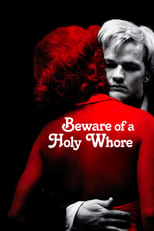
Title: Beware of a Holy Whore
Character: Irm
Released: August 28, 1971
Type: Movie
Tensions between members of a film crew build while they wait for the arrival of the director and star to arrive on location.

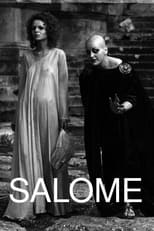
Title: Salome
Character: Herodes
Released: June 11, 1971
Type: Movie
Schroeter's virtuosic staging of the Oscar Wilde tragedy is a complex montage of image and sound, filmed on the grand steps of Baalbeck, the ancient Roman temple in Lebanon, and interweaving Lebanese and German folk songs with the music of Verdi, Wagner, Strauss, Mozart, Bellini, and Donizetti. Elfi Mikesch, the cinematographer of Schroeter’s later films, designed the film’s sumptuous costumes. A contemporary critic for Le Monde wrote admiringly of Schroeter’s depiction of "the deadly struggle between dark Christian morality and luminous paganism.“

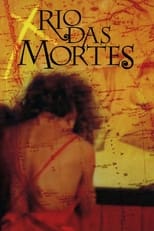
Title: Rio das Mortes
Character: Hannas Kollegin
Released: February 15, 1971
Type: Movie
Michel and Guenther, working in dead-end jobs, are obsessed with going to Peru to find buried treasure, using a map of the Rio das Mortes. Michel's girlfriend, Hanna, humors their plan, but really just wants to get married.


Title: Scene of the Crime
Character: Annemarie Melz
Released: November 29, 1970
Type: TV
Tatort is a long-running German/Austrian/Swiss, crime television series set in various parts of these countries. The show is broadcast on the channels of ARD in Germany, ORF in Austria and SF1 in Switzerland.


Title: Der Bomberpilot
Character: Magdalena
Released: November 3, 1970
Type: Movie
Schroeter’s film is a chronicle of Germany from the Nazi era until the economic boom of the 1950s and 1960s, centering on three women who search for a career as singers and dancers.


Title: The Niklashausen Journey
Released: October 26, 1970
Type: Movie
Can a small group of people start a proletarian revolution, asks the "Black Monk" in a leather jacket. The medieval shepherd, Hans Boehm, claims to have been called by the Virgin Mary to create a revolt against the church and the landowners. The "Black Monk" suggests that he would have more success if he dressed up Johanna and had her appear as the Virgin Mary.


Title: Argila
Released: March 7, 1969
Type: Movie
Werner Schroeter's stunning split-screen short deals with what the director called "archaic, fundamental themes" of love and mourning.

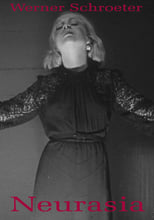
Title: Neurasia
Released: March 7, 1969
Type: Movie
In a dark and spare theatrical space, four characters use gesture, language, and movement to explore themes of desire and mortality.
